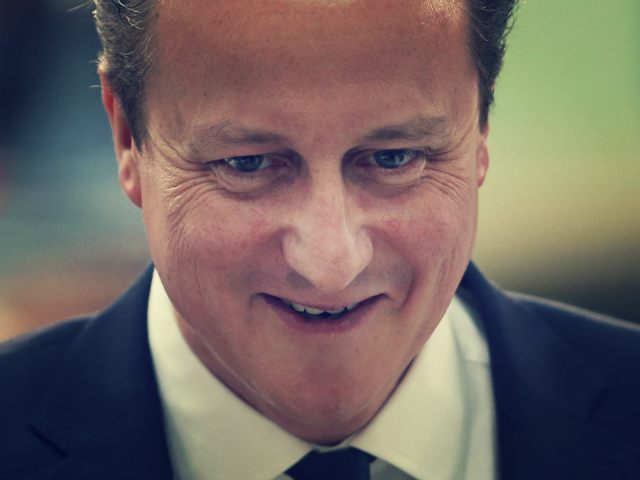British Prime Minister David Cameron has alleged that Britain leaving the European Union would lead to Calais ‘Jungle’-style camps in the South East of England – effectively threatening the nation that if they vote to remain in the European Union, he will implement more lax border controls.
The threat comes as Mr. Cameron faces an uphill struggle to win support for his ‘Brexit’ deal plans, after public opinion roundly rejected his ‘renegotiation’ with European leader as announced last week.
The Telegraph reports: “It is understood [the Prime Minister] will set out the argument in the days and weeks after he calls the date of the referendum, which is expected to be set later this month” with a government source adding: “The French would love to pull out of the arrangement… We will be telling people – look, if we leave the EU the Jungle camp in Calais will move to Folkestone. That is not something people want.”
But the announcement would effectively mean Mr. Cameron is willing to abdicate his responsibilities to keep Britain’s borders secure in the event that Britain leaves the European Union.
To have the continued presence of British border guards on the other side of the English Channel would be imperative under the British-French deal surrounding the crossing – as evidenced by the presence of French border security at St. Pancras station, where the Eurostar leaves from. But Mr. Cameron plans to claim this would no longer be the case. Under his aspersions, the security arrangements for the entire channel crossing would be scrapped.
The deals, known as the Juxtaposed Controls, are external to Britain’s European Union memberships, and in February 2003, France and Britain concluded the ‘Treaty of Le Touquet’ which established French checks at Dover and British controls at Calais and Dunkirk.
UKIP’s leader Nigel Farage told Breitbart London this morning: “This is a desperate attempt from David Cameron to distract people from his pathetic, bungled EU deal. Le Touquet treaty is a bilateral deal, nothing to do with the EU and of course international co-operation would continue once we leave the EU.”
Critics have also called Mr. Cameron’s claims “scaremongering” though some might think they are actually more risible than to be taken seriously.
Britain and France are separated by, at its shortest, 20 miles of water. The idea that migrants would make it across into Britain, either via ferry, automobile, or train, would effectively mean that Britain’s border control had given up vetting those leaving France for Europe – the equivalent of someone boarding a plane to the United States without a ticket, a visa, or a passport.
Furthermore, if Britain were to leave the European Union, France would be bound by the Dublin Regulation which prioritises the responsibility for asylum applications on the European country of entry.
Dublin II makes it clear: “only one Member State is responsible for examining an asylum application” and with Britain out of the European Union, it would not have to answer to rulings made by the European Court of Human Rights, nor would it necessarily, as a non-member state, have to honour Dublin at all. France however, would still have to implement the deal.
The legislation states: “Where the asylum seeker has irregularly crossed the border into a Member State, that Member State will be responsible for examining the asylum application. This responsibility ceases 12 months after the date on which the border has been illegally crossed.
“When the asylum seeker has been living for a continuous period of at least five months in a Member State before lodging his/her asylum application, that Member State becomes responsible for examining the application. Where the applicant has been living for a period of time of at least five months in several Member States, the Member State where he/she lived most recently shall be responsible for examining the application.”
Mr. Cameron’s threats, especially to the British border town of Folkestone, are unlikely to be well received.

COMMENTS
Please let us know if you're having issues with commenting.